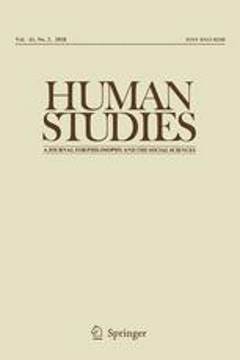Repository | Journal | Volume | Articles

(2018) Human Studies 41 (2).
Spirituality and intersubjective consensus
a response to Ciocan and Ferencz-Flatz
Jonathan Tuckett
pp. 313-331
In The Human Place in the Cosmos Max Scheler argues the question of philosophical anthropology must address three problems: (i) the difference between man and animal; (ii) the Cartesian problem of the mind and body; and (iii) the essence of spirit. In a recent issue of Human Studies, two articles by Cristian Ciocan and Christian Ferencz-Flatz addressed the first of these problems through investigations of Husserl’s Nachlass. In this paper, I respond primarily to Ciocan by drawing on Scheler’s phenomenology and the implications this has for understanding Husserl’s phenomenology. By looking at Husserl’s published comments, we can see how the attempt to differentiate between man and animal is bound up with his understanding of spirituality. This allows an alternative way of understanding normality and abnormality which shifts emphasises away from how far we can empathise with the Other (be they man or animal) to emphasise what it means to be normal or abnormal. This will allow us to address an ambiguity of Husserl identified by Ferencz-Flatz.
Publication details
DOI: 10.1007/s10746-018-9458-8
Full citation:
Tuckett, J. (2018). Spirituality and intersubjective consensus: a response to Ciocan and Ferencz-Flatz. Human Studies 41 (2), pp. 313-331.
This document is unfortunately not available for download at the moment.



